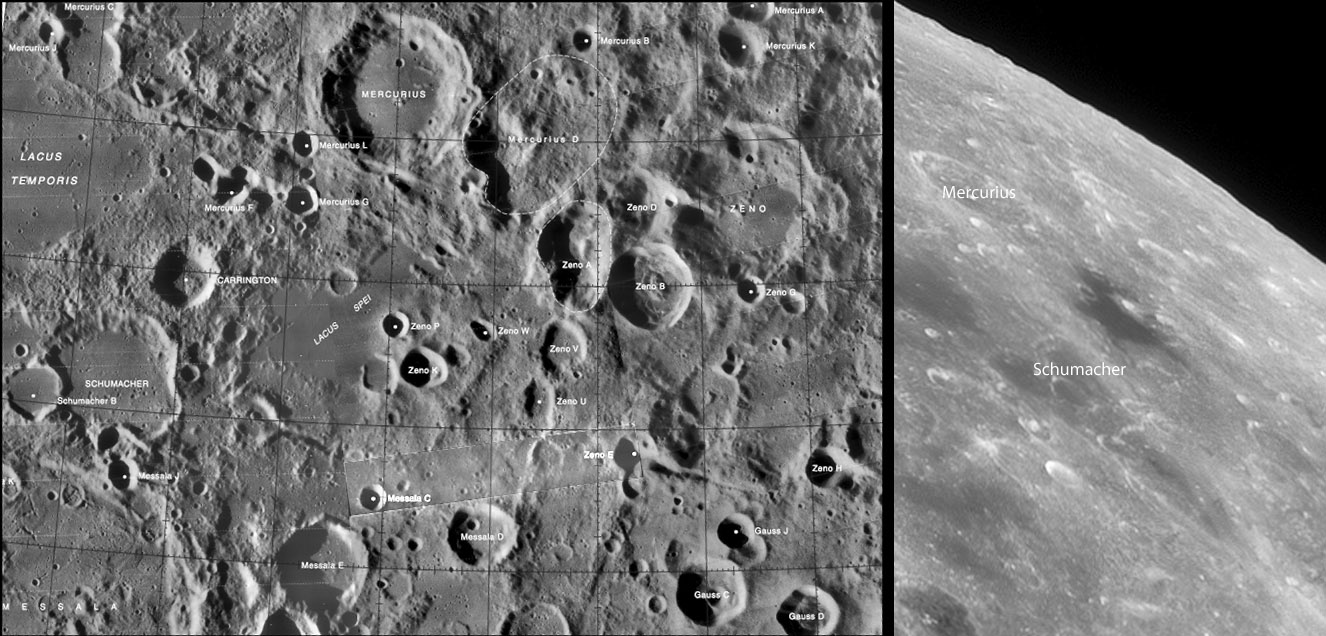April 5, 2010
Hopelessly Ignored

left image from USGS Digital Atlas and right by Dmitry Makolkin, Moscow, Russia
The little patch of mare material called Lacus Spei (Lake of Hope) near the northeast limb has always intrigued me. When I was younger it was called Struve, a name given by Madler in 1834 and later renamed Mare Struve by Franz near the turn of the last century. In 1976 the IAU gave the current name. Regardless of what it is called the important question is why does a small bit of mare basalt exist there? Presumably Spei's lavas fill a low spot that might be expected to be an ancient basin but no basin is identified in the area. Near Spei are other mare deposits such as Lacus Temporis and the floors of Endymion and other craters, but they aren't as dark. This is probably a cryptomare area, a place where normal mare basalt is older than average and dusted with ejecta that has lightened its surface. Attempting to find a scientific reference by searching all the Lunar & Planetary Science Conference abstracts from 1971 to 2010 remarkably turns up no hits - Lacus Spei appears to be totally unstudied. I don't believe this but can't find anything. I speculate that cryptomaria erupted into basins that are now too old to be detected, which implies that an ancient basin may exist in this area.
Chuck Wood
Technical Details
Right image: 25 March 2010, 18:29 - 19:18 UT, Moscow, Russia. TAL-250K, D=250mm F=2130mm + DMK31 + Astronomics IR Pro 742nm filter.
Related Links
Rükl plate 16
Dmitry's wonderful mosaic that I cut the small Spei section from.
COMMENTS?
Register, and click on the Discussion tab at the top of the page.



